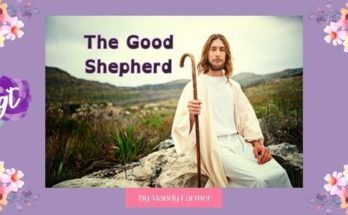Welcome back to Time in the Word. If you missed last week’s devotional, you can catch that here. Today we begin with Moses and Aaron’s initial visit to Pharaoh. You could consider it an official meet and greet. Though no one exchanged business cards or traded pleasantries, God is setting the stage for his power to be displayed. Today we get to dive into Gods and Goddesses 101.
Turn with me in your Bible to Exodus 5 and 6. If you are reading this digitally, you can get the scripture here. BE SURE to check out the goodies linked below. There are articles to read and helpful PDFs to print out and mull over. Enjoy!
Batter up!
Moses and Aaron have made their appearance before Pharaoh. They have asked for permission to travel three days into the wilderness to hold their festival for worship and sacrifice. If you look at Exodus 5:4, Moses and Aaron warn Pharaoh if he doesn’t allow the Israelites to leave, “he (God) may strike us with plagues or the sword.” That was the tip-off of what was to come.
Pharaoh gets annoyed
Pharaoh becomes annoyed with Moses and Aaron after their three-day vacation request. At first glance, it would be easy to say Pharaoh was being disrespectful, but when we take a closer look, we can understand his remarks.
- Pharaoh knew many gods and goddesses. G-O-D God- the one and only true God, was unknown.
- The Israelites were great slave laborers to build the monuments for the Egyptian kings. The Israelites leaving meant work wasn’t getting done. DUH! What boss lets all his employees leave for three days, and no work will get done?
- Pharaoh (as with any good dictator) squashes any rebellion or dreams of vacation. He did this by making life very hard with unrealistic expectations and bodily harm for those in leadership if brick quotas were not met.
A peek at Egyptian life
Gods were invented in the creation myths. Myths explain creation, aspects of human life, and death. Gods and goddesses had human bodies with heads of animals.
Ancient Egyptian worship of gods and goddesses had three main aspects:
- Animistic: gods represented natural forces- floods, the moon, and the sun.
- Anthropomorphic: gods took on human-like characteristics when visiting earth; some had animal heads and human bodies.
- Polytheistic: gods were considered sacred and abounded in number, believing in more than one god or goddess.
Egyptian life was worship of the gods and goddesses through a relationship between the natural and supernatural. Egyptians were in constant pursuit to please their gods and goddesses.
Pleasing and obeying these gods would mean a favorable judgment from them in your afterlife. If things went well for you, your spirit only needed a body to occupy. Then you could enjoy eating, drinking, and living out eternity. That is why mummification of your body was important.
Many gods and goddesses were dominant in certain cities or regions. As politics began to play a dominant role, so went those political leaders favored god and goddesses. Things are not much different now, are they?
Till next time. Thank you for joining me here today in Time in the Word.
Resources:
- https://www.grunge.com/485618/the-ten-plagues-of-egypt-explained/
- http://www.stat.rice.edu/~dobelman/Dinotech/10_Eqyptian_gods_10_Plagues.pdf
- http://www.stat.rice.edu/~dobelman/Dinotech/10_Eqyptian_gods_10_Plagues.pdf
- https://theologyschool.org/2021/01/13/one-god-sends-ten-plagues-for-ten-egyptian-gods-and-goddesses/
- https://www.allabouthistory.org/egyptian-gods.htm

Michele Bruxvoort is sure to draw you in with her delightful sense of humor and love for living life. She enjoys reading, repurposing, as well as remodeling the family home with her husband. Drawing from her life experience as wife, mom, and follower of Jesus, Michele brings you a very honest and real perspective on life. When you don’t find her writing, you can find her mowing lawns, stocking shelves, taking care of her grandbaby and tackling her latest life adventure.
Wisconsin native and empty-nester, she now makes her home with her husband of 27 years in the South West Prairie plains of Minnesota.



